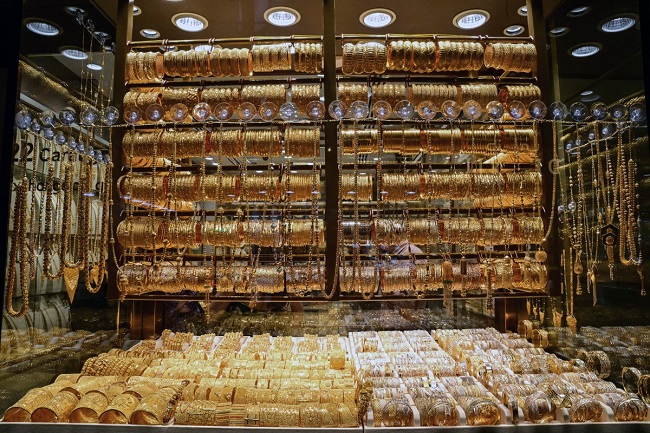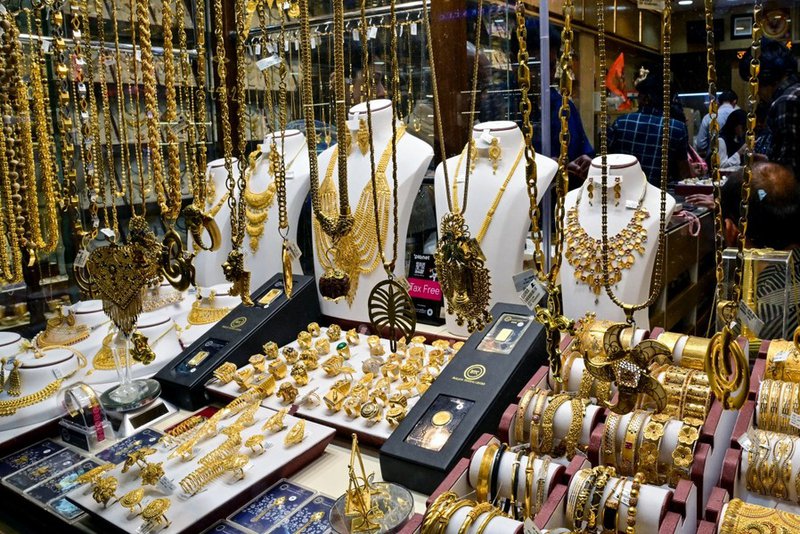Sudan, a country rich in natural resources, has seen its gold industry boom despite ongoing conflict and political instability. Gold has become a crucial economic lifeline, but it has also fueled violence and illicit trade. Among the biggest beneficiaries of Sudan’s wartime gold trade is the United Arab Emirates (UAE), which has emerged as a major hub for Sudanese gold exports. This trade raises questions about its economic impact, ethical concerns, and the role of international actors in regulating the flow of conflict gold.
Sudan’s Gold Industry: A Lifeline Amid Crisis
Gold mining is a major pillar of Sudan’s economy, especially in times of crisis. As the country faces internal conflict and economic turmoil, gold has become a primary source of revenue. Sudan is the third-largest gold producer in Africa, with an estimated 100 tons of gold mined annually. However, a significant portion of this gold is smuggled out of the country, bypassing government controls and enriching armed groups, corrupt officials, and foreign traders.

In 2023, Sudan’s official gold exports generated approximately $1.5 billion in revenue. Yet experts believe that the actual value of gold leaving the country is much higher, with a large portion evading official documentation. Artisanal and small-scale miners produce about 80% of Sudan’s gold, often under harsh conditions with little government oversight. This unregulated mining makes it easier for gold to be smuggled across borders, fueling an underground economy that benefits militias and warlords rather than the Sudanese people.
The UAE: A Key Destination for Sudan’s Gold
The UAE, particularly Dubai, has become a key hub for Sudanese gold exports. Dubai’s gold markets are known for their lax regulations, which allow traders to purchase gold with minimal scrutiny. The UAE officially imports large quantities of Sudanese gold, making it one of the largest buyers. In 2022, the UAE imported approximately 39 tons of Sudanese gold, valued at over $2 billion. However, analysts estimate that the actual volume could be much higher due to smuggling and underreporting.
Gold traders in Dubai benefit from tax-free transactions, high demand, and a well-established refining industry. The city’s gold souks, bustling with activity, provide an easy gateway for gold that may have originated from conflict zones. Many of these transactions occur in cash, making it difficult to trace the origins of the gold and whether it has contributed to funding armed conflicts.
Conflict Gold: Financing War and Armed Groups
Sudan’s gold trade is deeply tied to its ongoing conflict. Both the Sudanese Armed Forces (SAF) and the paramilitary Rapid Support Forces (RSF) have been accused of controlling gold mines and using the proceeds to fund their military operations. Gold has become a crucial resource for these groups, allowing them to purchase weapons, pay fighters, and sustain their campaigns.
The RSF, in particular, has significant control over Sudan’s gold industry. The group has been accused of using its dominance in the gold trade to finance its operations, including human rights abuses and violent crackdowns on civilians. Reports suggest that some of the gold exported to the UAE has been linked to RSF-controlled mines, raising ethical concerns about the role of international buyers in enabling conflict gold to enter the global market.
Beyond Sudan, there are allegations that the UAE has provided weapons and logistical support to the RSF, further complicating its involvement in the Sudanese conflict. While the UAE denies any direct support for armed groups, its continued trade with Sudan raises questions about its role in indirectly financing the war.
The Global Scrutiny on Sudan’s Gold Trade
The international community has taken increasing notice of Sudan’s gold trade and its connection to conflict. Human rights organizations and policymakers have called for stricter regulations to prevent conflict gold from entering global markets. In 2024, the United States and European Union imposed sanctions on entities linked to Sudanese gold smuggling, aiming to disrupt the financial networks of armed groups.
The U.S. has also accused Russia of playing a role in Sudan’s gold trade, alleging that Russian entities have helped both sides of the conflict launder gold through international markets. These accusations highlight the complex web of interests involved in Sudan’s gold economy and the geopolitical stakes at play.
Efforts to reform Sudan’s gold industry have been met with mixed success. The Sudanese government has attempted to introduce regulations to prevent smuggling and ensure that gold revenues benefit the national economy. However, weak enforcement, corruption, and ongoing conflict have made it difficult to implement meaningful change.
Meanwhile, international gold markets, including those in the UAE, face increasing pressure to introduce transparency measures. Some gold exchanges have pledged to strengthen due diligence requirements and ban conflict gold from their supply chains. However, enforcement remains a challenge, particularly in informal trading networks where gold can easily be laundered and resold.
The Ethical Dilemma for Traders and Consumers
For traders and consumers, the Sudanese gold trade presents an ethical dilemma. The gold purchased in markets such as Dubai may have originated from conflict zones, indirectly supporting armed groups responsible for violence and human rights abuses. This raises concerns about responsible sourcing and whether international buyers should take more responsibility for ensuring that the gold they purchase is conflict-free.
Consumers who buy gold jewelry, investment bars, or electronic components made with Sudanese gold may unknowingly contribute to fueling war and instability. Ethical gold sourcing initiatives, such as Fairtrade Gold and the Responsible Jewellery Council, aim to provide alternatives to conflict gold, but these efforts have yet to significantly impact Sudan’s gold trade.
Some experts argue that stricter regulations and increased consumer awareness are needed to curb the flow of conflict gold. However, without stronger enforcement and cooperation from key players like the UAE, the illicit trade is likely to continue.
What’s Next for Sudan’s Gold Trade?
The future of Sudan’s gold trade remains uncertain. As conflict continues, gold will likely remain a key source of funding for armed groups. Without meaningful reforms and international pressure, Sudanese gold will continue to flow into the global market, enriching traders while contributing to violence in Sudan.
For Sudan to benefit from its gold industry, stronger governance and transparency measures are needed. Efforts to formalize the gold trade, curb smuggling, and ensure fair revenue distribution could help Sudan’s people rather than warlords and foreign entities. However, achieving these goals requires political stability, which remains elusive amid ongoing fighting.
Meanwhile, the UAE’s role in Sudan’s gold trade will continue to be scrutinized. As one of the world’s largest gold trading hubs, the UAE faces growing pressure to introduce stronger regulations and ensure that its gold imports are not tainted by conflict. Whether the UAE takes meaningful action or continues to benefit from Sudan’s wartime economy remains to be seen.
In the end, the story of Sudan’s gold is one of both opportunity and exploitation. If properly managed, gold could be a driver of economic growth and development. But in the current climate of war and smuggling, it remains a resource that fuels conflict and enriches a select few at the expense of the many.
UAE Ranked Second Safest Country in the World – But Who’s First?



